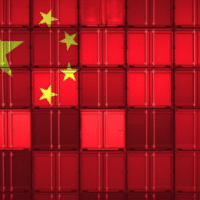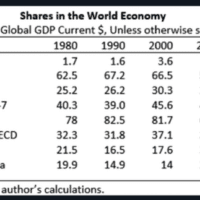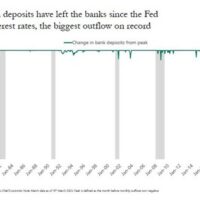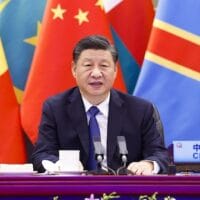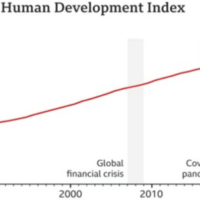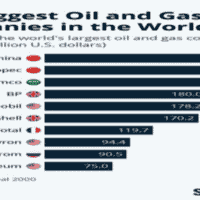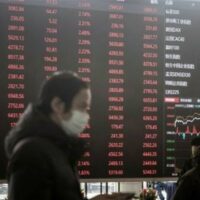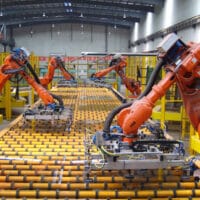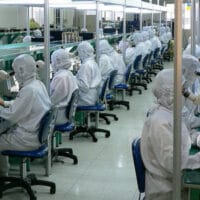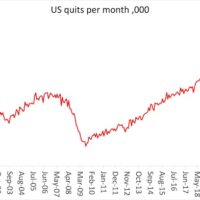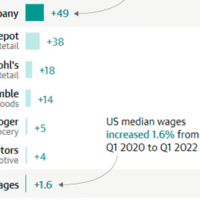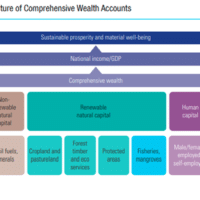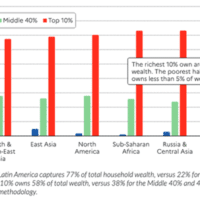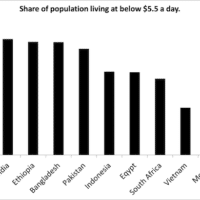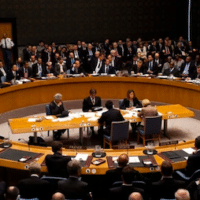-
Has China really reached the end of its economic boom?
China’s state sector still has a powerful ability to sustain investment and production.
-
Modern supply-side economics and the New Washington Consensus
Last month, the U.S. National Security Advisor, Jake Sullivan, outlined the international economic policy of the U.S. administration. This was a pivotal speech, because Sullivan explained what is called the New Washington Consensus on U.S. foreign policy.
-
What’s the problem with pensions?
The recent massive demonstrations against the Macron administration in France forcing through so-called pension reforms reveals the determined attempts of pro-capitalist governments in all the major economies to cut real wages when we are old and can no longer work.
-
Banking crisis: is it all over?
Bank stock prices have stabilized at the start of this week. And all the key officials at the Federal Reserve, the U.S. Treasury and the European Central Bank are reassuring investors that the crisis is over.
-
Xi’s third term – part one: growth, investment and consumption
China’s Congress of the Communist Party takes place this week.
-
Trickle down economics
The UK government’s economic policies under new PM Liz Truss have caused a stir among, not only leftists, but also among mainstream economists.
-
Life expectancy and human development in the 21st century
Life expectancy is one of the best measures of human development.
-
Energy, cost of living and recession
The G7 governments have a problem.
-
The invasion of capital
Last week, Ukraine’s foreign private creditors agreed to the country’s request for a two-year freeze on payments on about $20bn of foreign debt.
-
Europe: caught in a trap
The major economies are moving closer to recession, if they are not already there; and yet inflation rates continue to rise (for now).
-
Is China headed for a crash?
So, is this the moment of collapse in the Chinese model of development and the end of all that talk about ‘moving towards socialism’ etc? Many Western experts think so.
-
The Future of Work (Part 3) – automation
In this third part of my series on the future of work, I want to deal with the impact of automation, in particular robots and artificial intelligence (AI) on jobs. I have covered this issue of the relationship between human labour and machines before, including robots and AI. But is there anything new that we can find after the COVID slump?
-
The Future of Work (Part 2) – working long and hard
In the first post of my Future of Work series, I looked at the impact of working from home and remote work which has mushroomed since the COVID pandemic.
-
The future of work 1 – remote working
A few weeks ago, the world’s richest man Elon Musk, Tesla CEO, told his employees that they must return to the office or get out of the company. Musk wrote in an email that everybody at Tesla must spend at least 40 hours a week in the office.
-
Food, famine and war
If anything proves that famine and food insecurity are man-made rather than due to vagaries of nature and the weather, it is the current food crisis that is putting millions globally close to starvation.
-
Inflation: wages versus profits
Prices of commodities can be broken down into the three main components: labour costs (v= the value of labour power in Marxist terminology, non-labour inputs (c =the constant capital consumed, and the “mark-up” of profits over the first two components (s = surplus value appropriated by the capitalist owners). P = v + c + s.
-
The wealth of nations
Marx’s first sentence in Capital Volume One is: “The wealth of those societies in which the capitalist mode of production prevails, presents itself as an “immense accumulation of commodities”, its unit being a single commodity.” (Moore and Aveling translation).
-
World inequality
The world has become more unequal in income and wealth in the last 40 years. That’s according to the World Inequality Report 2022.
-
Views on China
What is the experience and future for China and its Communist party rule? It seems appropriate to consider a number of new books on China that have been published that try to answer this question.
-
COP-out 26
Marxist economist Michael Roberts shares his take on the Glasgow climate talks—what is on and what is not on the agenda.

